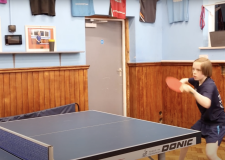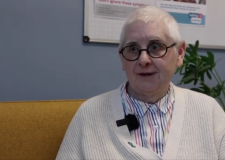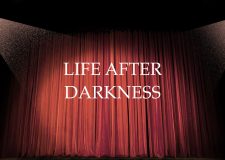Pop-Ups: Austerity Commerce With A Socially-Conscious Soul
It’s impossible to walk down a street in East London without seeing a new pop-up shop, gallery, or restaurant. Whether it’s Boxpark in Shoreditch- a shopping centre made up of shipping containers on short term leases- or a Sunday Roast supper-club serving up the best of hand-reared British in a Hackney pie and mash shop, they populate every shop-front and back-street. They’re so ubiquitous they’re almost a cliché, an eventuality side-stepped by the stream of novel ideas for using un-used industrial and retail space, ideas being driven by brands and creatives looking for short-term solutions to long-term aims.
Slowly they’ve crept across the capital, and a cursory internet search will reveal a raft of places popping-up (sorry) across the country, from Birmingham to Glasgow, via Manchester and the rest in-between. We’ve seen a few pop-up ventures in Brighton already, like the Gourmet Girls vegan restaurant in Hanover, and volunteer-only Make Away clothes shop run by the Retail Ready People initiative.
With the advent of a new project, however, they will soon be a much bigger part of the local landscape and, hopefully, become a genuine vehicle for social and economic change.
“There’s so many creatives in Brighton, and just not enough work space” says Branwen Lorigan, one the driving forces of ReCreate, the council backed, EU part-funded initiative behind the project to bring pop-ups to Brighton on a bigger scale. “It has an active cultural diversity, benefitting also from circa 35,000 university students and a strong 24 hour economy,” she adds.
ReCreate is part of an EU-funded Anglo-French initiative to promote economic growth through creative enterprises on the North Coast of France and South Coast of England. It is also the multi-partner team behind the The Fusebox, a 3,500 square foot multi-purpose space just finished in New England House that is now the centre of everything Recreate-related. They intend it to be the future hub for digital and creative industries in the city.
The Fusebox has been built and developed alongside Wired Sussex, an online membership organisation providing support, advice and opportunities for all businesses and freelancers working within Sussex’s digital, media and technological sectors. The Fusebox’s mantra is to provide a space for the city’s already flourishing digital and creative industries to fuse each other’s skills, in a bid to create what we’re told might one day be a brighter economic future.
The pop-up branch of the enterprise is based around a concept devised in tandem with wearepopup.com , who Recreate have engaged as their brokers. We Are Pop Up represent the landlords of empty retail or industrial spaces in the city. Individuals or brands approach them for one of the (as it stands) ten Brighton units available through the project, with a specification of what they want to do with the space, for how long, and what they can afford. The landlord can then decide if he or she would like to go ahead with the proposal: it is austerity commerce with a socially-conscious soul.
In the aftermath of the recession figures have suggested that one in ten retail units have laid empty, which means there is a swelling underbelly of disgruntled landlords, especially when they are lumbered with the buildings’ business rates that would normally be picked up by the tenant. From austerity comes innovation, however, and with Recreate’s project the landlord cannot only lease their unit (for terms starting from just one day), but if they do so for more than six weeks they will be entitled to three months business rates relief.
“It’s a way of getting people into the space- they could be potential long term clients. If their project is a success they might then decide that it works well and want to turn it into a long-term project,” says Branwen. She cites Bert’s Homestores, which now has three branches in the city, as a company that started off as a pop-up store.
Who, then, can the landlords of these empty units expect to apply to take-over their space for anything from one day to one year? Rosie Cann of popupspace.com – a commercial partner of We Are Pop Up- says her clients generally fall into two categories; “independent online retailers and start-up businesses seeking space for product sales and high-street exposure, or PR and marketing agencies seeking space for a product launch or experiential marketing.” Abigail Freeman from We Are Pop Up takes the diverse nature of potential tenants even further, saying they have “everyone from an undergrad looking for a space, right up to major brands…there is no “average” customer.”
In recognition of this, there was two soft launches earlier in the year, one to commercial agents and one to the city’s major creative networks, with influential like names like Lighthouse, Fringe and the University all invited. According to Abigail they have already seen “dozens of sign-ups and space requests from Brighton and Hove-based businesses,” whilst they anticipate a big take-up from the “hundreds of early or mid-stage businesses who want access to consumer demographics.” There’s huge potential for expansion too, with Abigail citing 30 or so empty units on London Road as potential pop-ups of the future.
With all this all talk of expansion, business rates and consumer demographics, it can be a little hard to lose sight of why the project came about, to affect change by creating opportunities for creative individuals. Fortunately, spend five minutes with Branwen and she’ll take you back to the heart of the matter: “We’re linking this with a lot of other initiatives in the city, regeneration developments. It’s about pulling all these together, about sharing rather than duplicating money and connecting with the creative community and making sure that people are in the loop. We want to create a legacy.”
Words: David Hillier



















